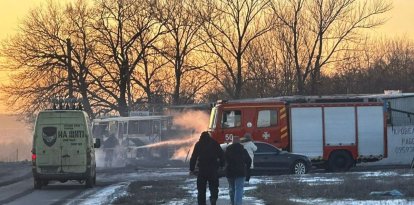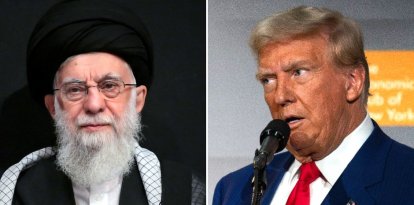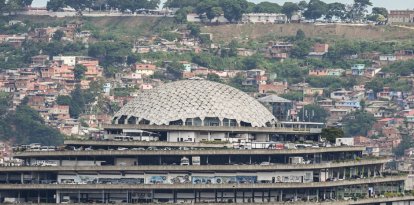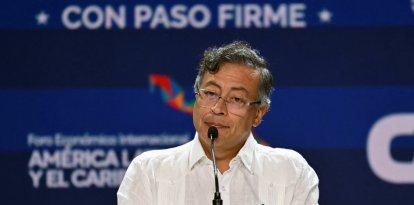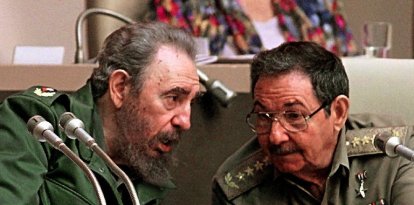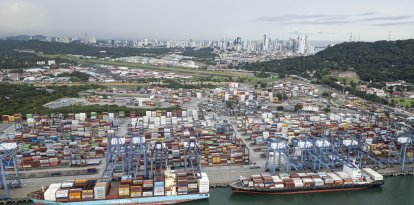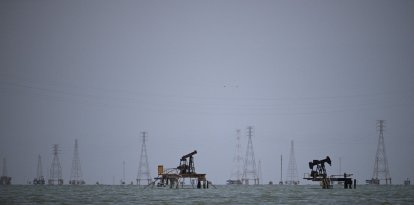Death of Ebrahim Raisi: Who is Mohammad Mokhber, successor to the late Iranian president
He was Raisi's vice president and very close to Supreme Leader Ali Khamenei. Although there will be elections within 50 days to elect a new president, in Iran, the question now is who is next in line to be supreme leader, previously assumed to be the deceased president.
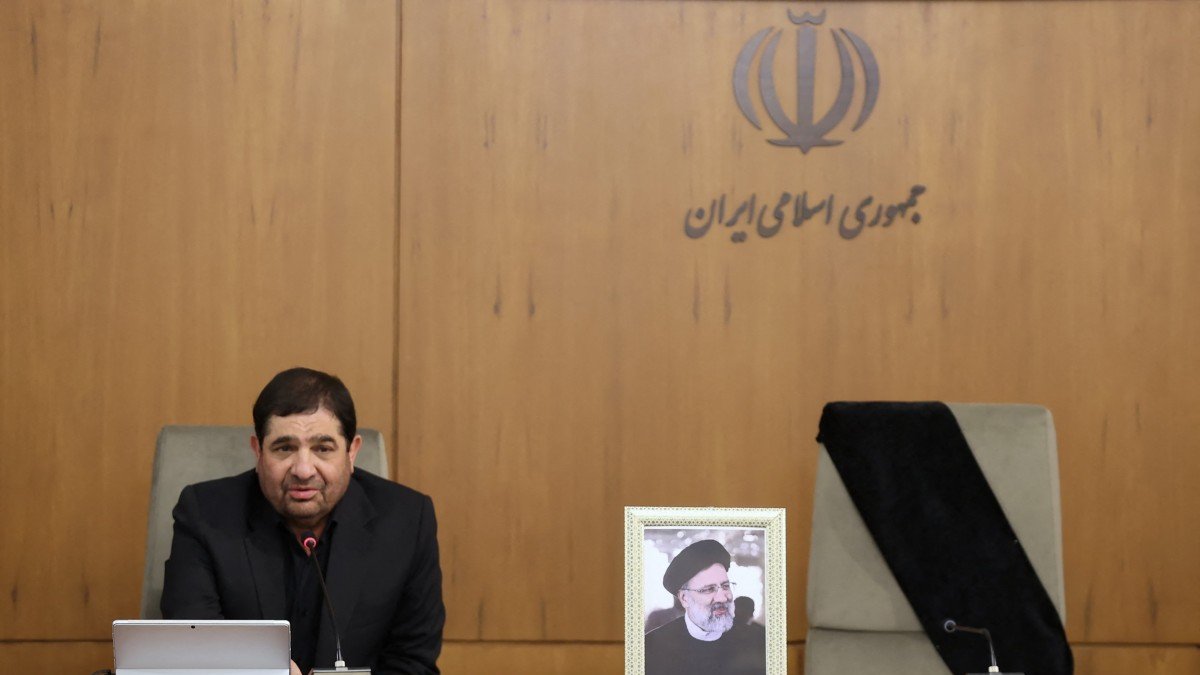
A handout picture released by the Iranian presidency shows Iran's First Vice President Mohammad Mokhber, with the seat of the late president Ebrahim Raisi (portrait) next to him empty, addressing the country's cabinet in Tehran on May 20, 2024. - After Iranian President Ebrahim Raisi and Foreign Minister Hossein Amir-Abdollahian were confirmed dead on May 20 when search and rescue teams found their crashed helicopter in a fog-shrouded western Iranian mountain region, the Islamic republic's supreme leader, Ayatollah Ali Khamenei, declared five days of mourning and assigned Mokhber, 68, to assume interim duties ahead of elections within 50 days. (Photo by Iranian Presidency / AFP) / === RESTRICTED TO EDITORIAL USE - MANDATORY CREDIT ""AFP PHOTO / HO / IRANIAN PRESIDENCY"" - NO MARKETING NO ADVERTISING CAMPAIGNS - DISTRIBUTED AS A SERVICE TO CLIENTS ===
Following the death of Iranian President Ebrahim Raisi in a helicopter accident which also killed his foreign minister and other senior officials, Ali Khamenei, Iran's supreme leader, declared five days of mourning and appointed Vice President Mohammad Mokhber to temporarily replace the deceased president.
Although the supreme leader has final say in matters of state management, the president, who is only elected to office if he has the approval of Khamenei, has considerable reserved powers, especially in internal affairs.
Mokhber, 68, is not a prominent figure in Iran, so it is unclear whether he intends to run as a candidate in the upcoming elections, which will be held within the next 50 days. The interim president is considered, like Raisi, as one of the supreme leader's collaborators.
According to a Reuters report published in October last year, Mokhber was part of an Iranian delegation that traveled to Moscow to reach an agreement to supply Russia with additional surface-to-surface missiles and drones for the war in Ukraine.
Mokhber became vice president when Raisi won the 2021 election. Previously, he headed the Iranian investment fund Setad, which is under the direct control of Khamenei. The fund, which manages properties that were "abandoned" during the chaos of the 1979 Islamic Revolution, is subject to U.S. sanctions. According to the United States, the value of his assets is estimated in the billions of dollars and gives Khamenei a foothold in almost all branches of the Iranian economy.
The regime tries to hide its concern: 'There will be no problems governing the country'
After the news of Raisi's death became known and after an emergency meeting, the Iranian government issued a statement indicating that the regime will continue the course taken by the late president. “With the help of Allah and the people, there will be no problems governing the country,” the statement read.
However, some reports indicated that authorities held another meeting that would indicate that the regime's concern is not minor. During this meeting, Mokhber reiterated the message previously issued by the authorities: "We will continue Raisi's path without problems," he said.
Khamenei also announced that, according to the Iranian Constitution, Mokhber, together with the leaders of the judiciary and Parliament, must organize new elections within a maximum period of 50 days.
It is not yet clear who will run in the planned elections. However, as is often the case in Iran, candidates will be required receive approval of the regime led by Khamenei. This meant that in the 2021 elections, when the ultra-conservative Raisi was elected, electoral participation reached a historic minimum, so it is estimated that something similar will happen in the next elections.
Raisi was a candidate to succeed Khamenei, who is next on the list?
Following the death of Raisi, who was a possible successor to Khamenei, there are questions in Iran about who will replace the supreme leader, who is 85 years old and reportedly suffering from some health problems.
One of the names that emerges as a possible successor to the supreme leader is his son Mojtaba Khamenei, 55 years old. However, in Iran there are those who oppose the transfer of office by inheritance, as happened during the government of the Shah, before he was overthrown in the Islamic Revolution.
Iran suffers economic crisis and harsh oppression from the regime
Raisi's death occurs at a delicate time in the Islamic Republic, which is enduring a severe economic crisis and the regime's harsh repression against critical citizens and women who decide not to wear a veil at all or wear one in a way that the regime considers inappropriate.
In recent years, the government has brutally repressed peaceful demonstrations, executed and sentenced opponents to death, and detained women who wore "hidden veils," killing some of them, among other atrocities.
At the international level, the regime is in the world's sights because uranium enrichment in Iran is reaching the levels necessary to create nuclear weapons, for helping Russia in its war against Ukraine, for financing and supporting terrorist organizations such as Hezbollah and Hamas and for launching an unprecedented attack against Israel last month.
















